Three Educators Take ACF’s Certified Master Pastry Chef® Exam in August
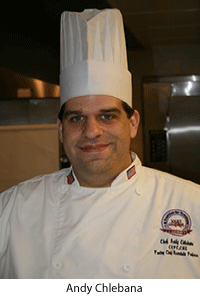 Pastry-chef instructors from Joliet Junior College, SAIT Polytechnic and The Pennsylvania School of Culinary Arts hope to become the 12th, 13th and 14th CMPCs in the United States.
Pastry-chef instructors from Joliet Junior College, SAIT Polytechnic and The Pennsylvania School of Culinary Arts hope to become the 12th, 13th and 14th CMPCs in the United States.
Four pastry chefs from across the nation will gather at Johnson & Wales University in Charlotte, N.C., Aug. 16-23, for the ultimate test—the American Culinary Federation’s (ACF) Certified Master Pastry Chef® (CMPC) exam. The eight-day long exam gives candidates the opportunity to earn the highest professional distinction available and join the elite group of only 11 CMPCs in the nation.
The Certified Master Chef® (CMC) program was initiated in 1981 and granted official recognition by the World Association of Chefs Societies the next year. The CMPC examination, first held in 1993, requires exacting familiarity and proficiency in a broad range of pastry styles and techniques. The most recent CMPC exam was held in 2005 at The Culinary Institute of America in Hyde Park, N.Y. Frank Vollkommer, CMPC, corporate executive chef at Hillcrest Foods in Saratoga Springs, N.Y., was the only candidate to pass the exam and receive the master-chef certification. Currently, there are 67 CMCs and 11 CMPCs in the United States, with a CMC exam scheduled for late 2014.

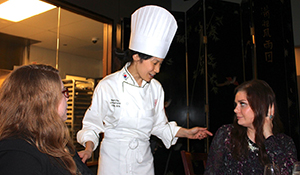 “How are you today?”, though arguably better than nothing, is so overused and insincere that it fails to distinguish the service culture of your retail foodservice outlets. To employ an effective interaction strategy (and increase sales), understand that customers respond on conscious and unconscious levels to every aspect of their engagement with your instructors and student employees.
“How are you today?”, though arguably better than nothing, is so overused and insincere that it fails to distinguish the service culture of your retail foodservice outlets. To employ an effective interaction strategy (and increase sales), understand that customers respond on conscious and unconscious levels to every aspect of their engagement with your instructors and student employees. In the candy and chips aisles, Sriracha is undoubtedly the pepper of the year, as evidenced at the Sweets & Snacks Expo in May. And “free from” claims reign supreme in this industry. A foremost food-trends expert surveys the landscape of cross-over flavor demands between the snack shop and restaurant.
In the candy and chips aisles, Sriracha is undoubtedly the pepper of the year, as evidenced at the Sweets & Snacks Expo in May. And “free from” claims reign supreme in this industry. A foremost food-trends expert surveys the landscape of cross-over flavor demands between the snack shop and restaurant.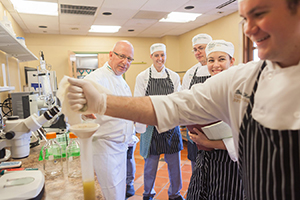 Since graduating in May, alums have already earned esteemed jobs, including at the “world’s best restaurant,” located in Denmark, and the world’s largest privately owned flavor and fragrance developer in Switzerland.
Since graduating in May, alums have already earned esteemed jobs, including at the “world’s best restaurant,” located in Denmark, and the world’s largest privately owned flavor and fragrance developer in Switzerland. While beginning a professional journal can be rewarding on several levels, maintaining a journal requires commitment. Here, Dr. Mayo offers tips and ideas for making the process of recording more valuable over time, as well as less taxing.
While beginning a professional journal can be rewarding on several levels, maintaining a journal requires commitment. Here, Dr. Mayo offers tips and ideas for making the process of recording more valuable over time, as well as less taxing. Chef Weiner lists his first 50 articles written for CAFÉ’s “The Gold Medal Classroom,” for the benefit of readers.
Chef Weiner lists his first 50 articles written for CAFÉ’s “The Gold Medal Classroom,” for the benefit of readers.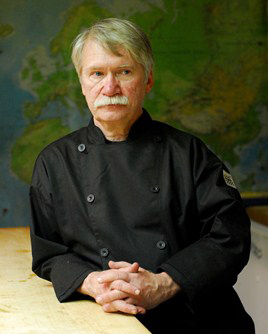 In curriculum development, although enrollment-management departments like to promote courses that concentrate on attractive ancillary skill sets, insufficient dedication to teaching strong foundational abilities will negatively impact student employability and success.
In curriculum development, although enrollment-management departments like to promote courses that concentrate on attractive ancillary skill sets, insufficient dedication to teaching strong foundational abilities will negatively impact student employability and success.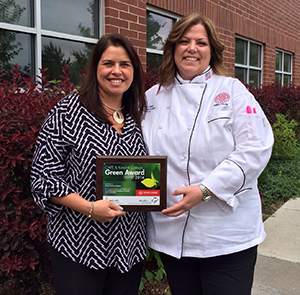 A collegiate culinary-arts program in South Florida earns top honors for exemplary practices in—and innovative teaching of—ecological sustainability.
A collegiate culinary-arts program in South Florida earns top honors for exemplary practices in—and innovative teaching of—ecological sustainability.